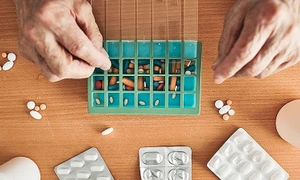
It's a move that supporters of the change say will ensure people know what help is available and may relieve them of the burden of steep healthcare costs. The provisions took effect Wednesday.
"It has far-reaching impacts so if we can help those families — if we can prevent some of that harm by just providing information — it very much feels like the right thing to do," Sen. Liz Boldon, DFL-Rochester, one of the bill's authors, said in an interview Thursday.
Earlier this year, Yolanda Pierson told a panel of state lawmakers that she and her husband were charged more than $7,000 on credit cards to pay for medical bills for their son; they are still working to pay them off. They were sued over the medical debt, and she said they paid the outstanding balances so he could maintain treatment at the hospital.
But later, Pierson learned that they would have qualified for assistance. Nobody told her about assistance at the time.
"That's disheartening as a parent. We focused on saving our son's eye and didn't fully understand the assistance available to us and no one at the clinic explained that to us," Pierson said at a March hearing.
Boldon hopes no other families experience what the Piersons did and that patients will be empowered with information about their options.
Now, hospitals must screen patients for what financial assistance they may qualify for, including "charity care" or free or discounted services depending on income. Nonprofit hospitals are required to offer it to keep their tax-exempt status under provisions in the Affordable Care Act.
Hospitals can't send any outstanding debt to collections, make changes to payment plans, or offer patients a loan to pay the debt until they check eligibility and help those patients apply.
The law changes follows an investigation by the Rochester Post Bulletin last year that found Mayo Clinic was suing patients for unpaid bills, even thought they would qualify for charity care. In a statement to WCCO on Thursday, a spokesperson for Mayo Clinic said in part that the health system offers financial counseling during and after services, and "has a robust financial assistance program that fully complies with the specifications of the new Minnesota statute."
One in 10 U.S. adults owe at least $250 in medical debt, according to a Kaiser Family Foundation analysis. A recent study of consumer debt by the Minnesota State Bar Association found the median amount of money in medical debt cases taken to court here is $1,500.
The move also codifies an agreement between the attorney general's office and all of the state's nonprofit hospitals about billing practices.
"It's a barrier for some folks to seek care and it's a real worry and concern for lots of patients," said Boldon, who's a nurse. "So providing information to them about what they might qualify for I think is important."
Hospitals also have post notices of their financial assistance in emergency departments and other places where patients are admitted.























